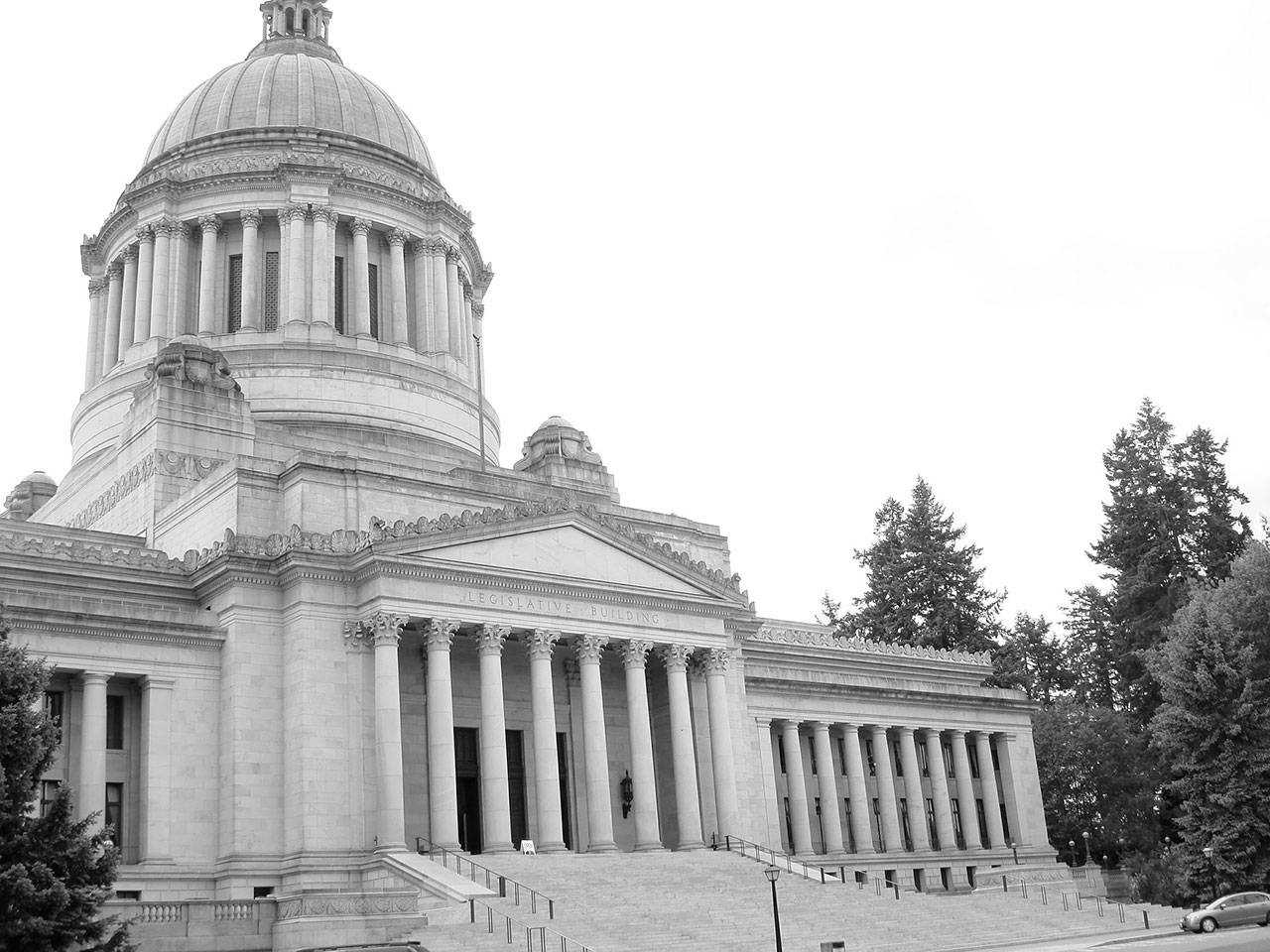Washington state lawmakers are meeting for a short, two-month regular session, ending on March 8, but bills they vote into law could have big impacts on San Juan County residents.
Education
As of press day, two bills in the House (House Bill 2721 and HB 2717) and two currently in the Senate (Senate Bill 6362 and SB 6352) address funding for what the state calls “basic public education.”
The bills aim to amend a state law, passed last summer, to make public education more equitable across Washington. They include changes in the current law’s requirements for state funding, staff salaries, classroom sizes and local levies.
The law was passed in the current, two-year state budget, which includes plans to meet education requirements of a 2012 state Supreme Court order known as the McCleary decision.
According to the law, Washington property taxes earmarked for education will increase, while local levies will be capped.
“This is probably the biggest issue facing all of the school districts,” said Ralph Hahn, the chairman of the San Juan Island School District Board. “Some face a huge reduction in funding.”
That includes the San Juan Island School District, which is slated to lose $400,000 if the current levy stipulations stay in place, said Hahn. He would like to see the requirement to cap local levies by 2019 removed.
Tom Baldwin, who volunteers for the Orcas Island School District’s budget advisory committee, agrees. Orcas district projects to lose close to $1 million, he said, if the levies are capped in 2019.
Baldwin added that district residents will see their net property taxes rise, while fewer funds go to the local school district, and, instead, will go to districts across the state with lower property taxes.
Since the current law could be changed during this legislative session, Hahn said the San Juan Island School District Board approved sending the district’s current levy rate to the ballots this April to be renewed. However, if the law stays the same, the levy cap would take effect before April’s renewed levy would be collected.
“We’ll have to wait and see what actually happens,” said Hahn.
Environment
Two bills in the Washington Legislature aim to protect the Salish Sea from oil spills and commercial farming of invasive finfish. Another will safeguard the endangered Southern resident killer whales, which call the waters surrounding the San Juan Islands homes.
Senator Kevin Ranker, D-Orcas, sponsored these bills, and Stephanie Buffum, executive director of Friends of the San Juans, said the local environmental advocacy nonprofit supports all of them.
As of press day, a bill currently in the Senate, SB 6269, would fund oil spills prevention and increase oil transportation safety. The bill includes applying the same tax on crude oil transported by vessel in barrels to oil transported through pipelines. If passed, it would also strengthen rules on spill cleanups in the Puget Sound and the Salish Sea, regarding heavy oils that sink and are hard to clean up.
“Urge your legislators to support efforts to strengthen [Washington’s] spill response for the Salish Sea,” said Buffum.
Another bill, SB 6086, prohibits commercial net pens used for farming invasive Atlantic salmon. If approved, the law would terminate existing net pen leases by 2025. The bill, which passed the state Senate and is currently in the house as of press day, follows the collapse of the Cooke Aquaculture net pen off the shore of Cypress Island, near the San Juans, last August. The approximate 300,000 Atlantic salmon that were released could potentially pass on diseases to native salmon.
As of press day, an additional bill currently in the Senate, SB 6268, addresses, among several issues, the vessel noise population that prevents Southern resident killer whales from finding food through echolocation. The bill would require boats to stay at least 400 yards away from orcas and travel no faster than 7 knots when in their vicinity, which would lower sounds underwater.
“The less noise impact, the less chance of interruption there will be on [orcas’] desperate need to hunt and feed,” said Lovel Pratt, director of Friends’ Marine Protection Program, about the endangered animals’ search for food.
The bill would also obligate the Washington Department of Fish and Wildlife to send out a dedicated whale patrol boat for 100 days over a 22-week period each year to enforce vessel regulations.
Additional bills
There are almost 1,000 bills in the state Legislature, which focus on additional items, including protecting open internet rules (HB 2282); making prescription drug costs more transparent (SB 5586); eliminating the death penalty (SB 6052); and enacting automatic voter registration (HB 2595 and SB 6353).
To research a bill, visit apps.leg.wa.gov/billinfo or call the legislative hotline at 1-800-562-6000. To find your state and congressional representatives, and contact information for them, visit app.leg.wa.gov/DistrictFinder and enter your address.





